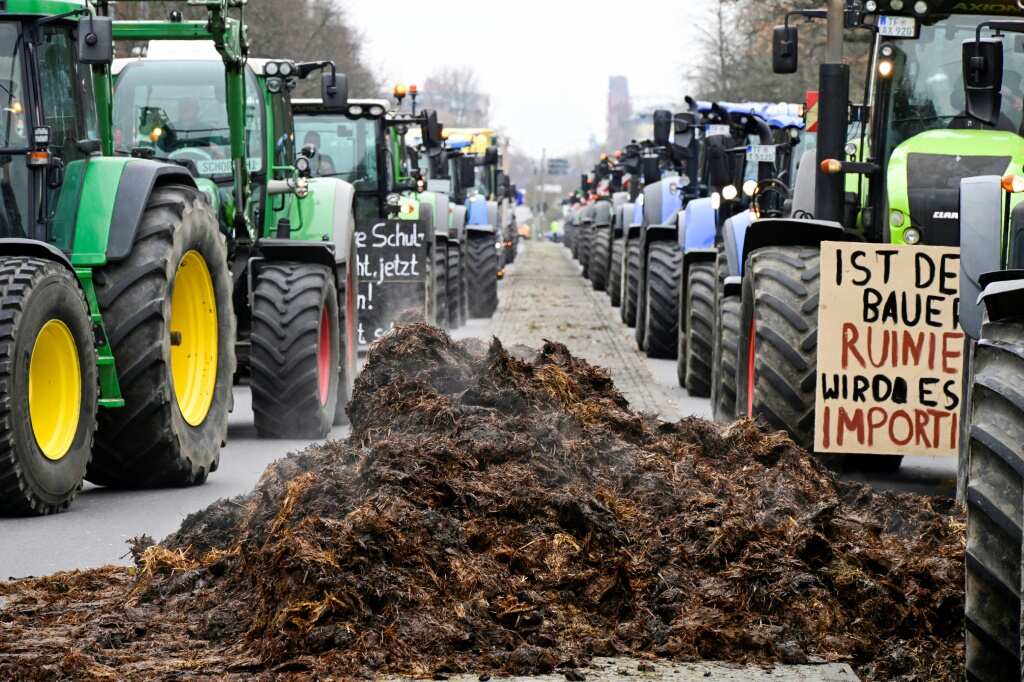Thousands of tractors are reported to have brought Berlin’s city centre to a standstill as farmers from across Germany protested on parliament’s doorstep over rising costs and a plan to phase out agricultural fuel subsidies.
Accordig to available reports, an estimated 30,000 protesters, including farmers supported by a wide range of representatives from other industries from fishing to gastronomy to logistics, blocked the streets around the government quarter on Monday with their vehicles, including lorries and forklift trucks, and even children’s toy tractors.
Joachim Rukwied, who is the president of the German farmers’ union, was quoted to have called on the government to scrap its plans to phase out fuel subsidies, warning that many farmers would be driven to bankruptcy by the decision.
“The government has the ability to change this,” he told thousands of protesters gathered at the Brandenburg Gate, adding: “This much is too much. Take back the proposals.” As soon as the government signalled it was prepared to backtrack, Rukwied promised, “the tractors will be withdrawn”.
Read also: Report: Energy from data centres could heat UK swimming pools
On his Christian Lindner, who is the finance minister and the main force behind the decision to cut the fuel subsidy, was greeted with loud boos and whistles as he took to the stage to address the rally.
“Your protest is legitimate and your protest is peaceful,” he told the protesters, praising their “cohesion”. But his words were hardly heard above the angry tumult.
He acknowledged that anger among farmers went beyond the diesel subsidy. “Something has been brewing for decades,” he said. “We need to talk.” He added that a “new phase” had arrived, “in which we need to speak afresh about what the function of the state is”.
The demonstration marked the culmination of a week of protests across the country that have attracted a growing number of workers from other fields, including thousands of trades people from heating engineers to plumbers, angry over high energy costs, mounting bureaucracy, high add-on labour costs and a lack of consultation.
Story was adapted from the Guardian.
